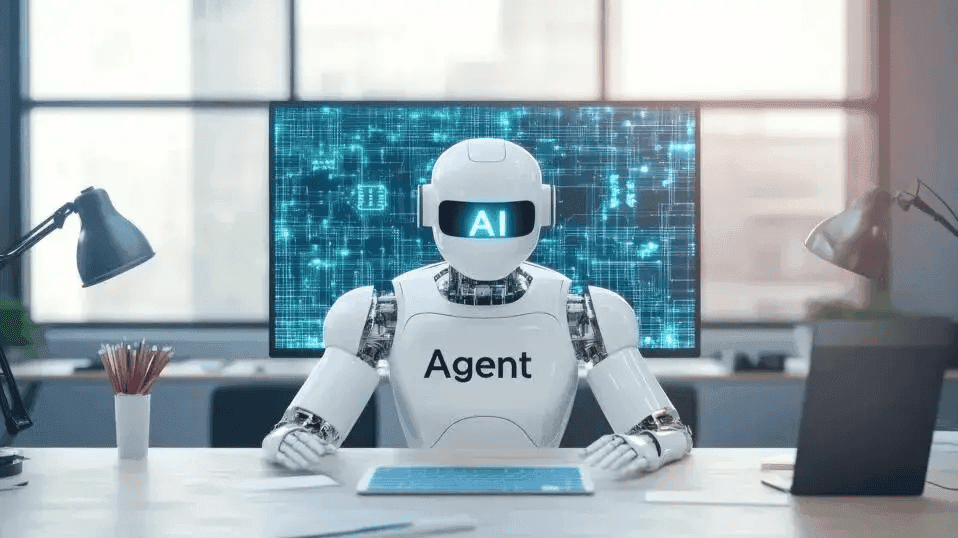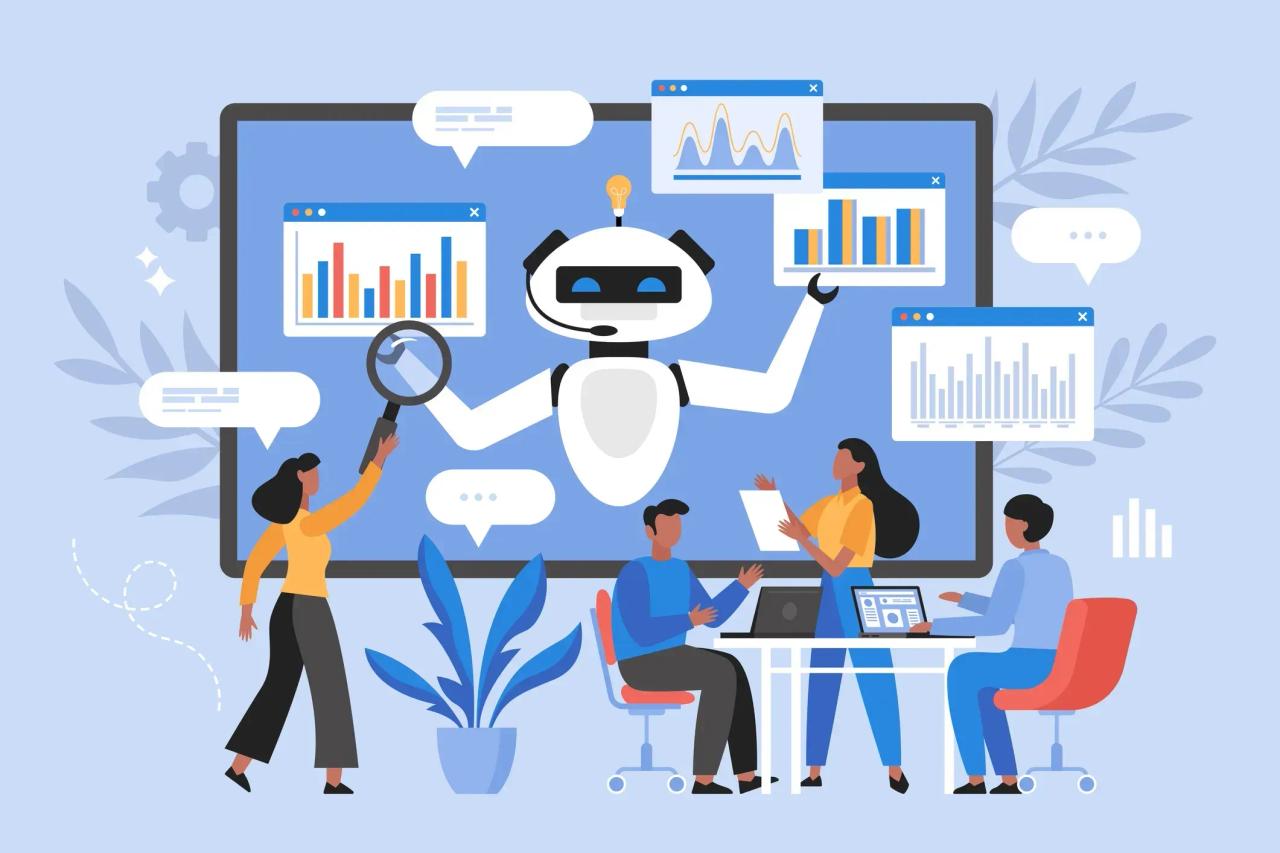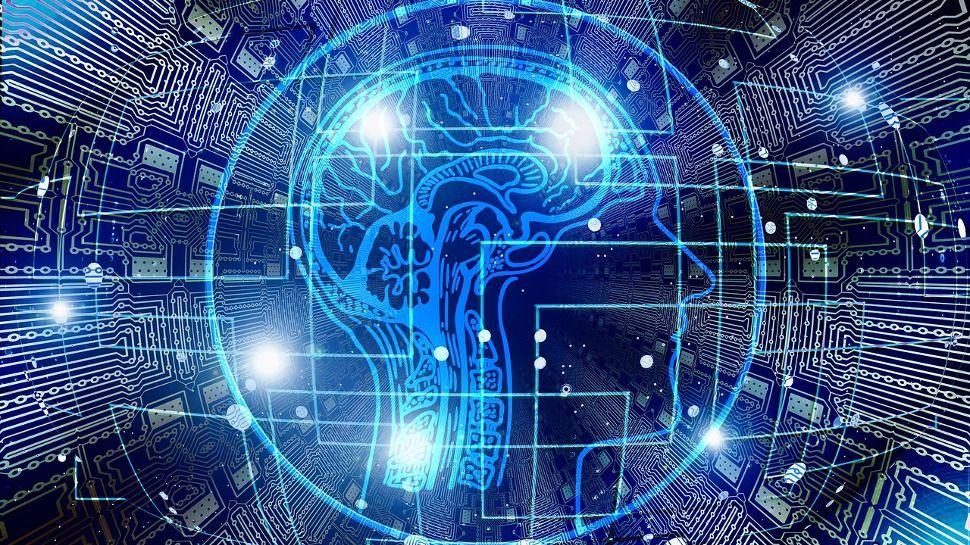The Rise of Agentic AI: Transforming Enterprise Software and Business Operations
5 Sources
5 Sources
[1]
The Agentic Business Fabric Is How AI Will Transform Enterprise Applications
The discussion around the agentic future of enterprise software is stuck on the promise of tech adoption. We're debating the ideas - which large language models to use, how to build agents, and the merits of various data fabric architectures, as if once embraced, you're on the way to success. While important, these conversations miss the point and distract from how these elements will fundamentally change the way business operates. We see organizations making massive tech investments that will ultimately fail to deliver value. Why? Because they're treating this as a silver bullet solution. It's not. The transition to an agentic business fabric future is fundamentally a reinvention of your operating model. Using AI enterprise platforms for internal operations to do what you already do faster is good. Using AI to do things you haven't done before is better. Success hinges on organizational and commercial shifts in business strategy. Forrester's vision of enterprise software applications. The agentic business fabric is an intelligent ecosystem where AI agents, your data, and your employees work together to achieve business outcomes. Instead of users navigating a dozen applications, the fabric orchestrates the necessary capabilities behind the scenes. The goal is to manage the integration of business workflows and make technology invisible, allowing your teams to focus on strategic work, not complex software. Stop Focusing On "What Agents Do." Focus On "How They Decide." Most leaders think about how AI will change existing workflows. High-performing enterprises are already redesigning job descriptions. As agents absorb routine tasks, the value of human employees shifts from 'doing the work' to supervising the system. Your future MVPs will be AI supervisors and process optimizers. These roles require deep domain expertise and data literacy. Are you actively defining these roles with HR? Are you building training programs to upskill your best people? If you wait, your workforce will be unprepared for the new operational reality. Redesign Jobs, Not Just Workflows Most leaders are thinking about how AI will change existing workflows. Higher performing enterprises are already redesigning job descriptions. As agents absorb routine tasks, the value of human employees shifts from 'doing the work' to supervising the system. Your future MVPs will be AI supervisors, exception handlers, and process optimizers. These roles require a hybrid skill set of deep domain expertise, data literacy, and a strong grasp of AI capabilities. Are you actively defining these roles with HR? Are you building training programs to upskill your best people from doers into optimizers? If you wait until the technology is mature, you will have a workforce unprepared for the new operational reality. Your Commercial Models Are Now Obsolete Finally, recognize the new vendor power play. Vendors are using AI urgency to end discounts and reset commercial terms. They sell premium-priced tools, but according to our research, the value is unlocked by your investment in process redesign, not the software. This means the burden of success and most of the cost falls on you. Organizations that fail to build architectural flexibility and financial discipline will find themselves locked into expensive platforms that deliver only theoretical benefits. Strategic Control Is the Real Challenge This AI era is about whether you will maintain strategic control over your digital destiny or surrender it. Leveraging the agentic business fabric requires a coalition of technology, business, finance, and HR leaders. Investing in the functional capabilities is the easy part; transforming how your business operates and captures new forms of value is the real challenge. To dive deeper into the architectural and strategic shifts required, read our new report, The Agentic Business Fabric Will Evolve Enterprise Business Applications. To pressure-test your own strategy, schedule a guidance with us and let's discuss your operating model for the agentic era.
[2]
The End Of Business Apps As We Know Them Is Here
AI Will Reinvent Business Applications Into An Agentic Business Fabric AI agents will fundamentally reimagine the mature market of enterprise business applications into an Agentic Business Fabric. This is a transformative architectural paradigm for the next generation of enterprise operations. Today's business models require a fully connected value chain. Yesterday's legacy environments cannot adapt to enable this change. The Agentic Business Fabric not just an evolution of current business applications but a new paradigm designed for autonomous operation, perpetual learning and optimization. It's an integrated network of capabilities where data, AI, workflows, business logic, and user experiences are deeply interwoven. It consists of 6 core capabilities: The Agentic Business Fabric Changes Everything In Business Operations The agentic business fabric isn't just a technological evolution; it's a fundamental rewiring of the principles of business operations. Eventually, business operations will become completely AI-driven. Jobs to be done will fundamentally shift; org structures will be flatter and more aligned; monetization will be based on value (consumption and outcomes); partner ecosystems will shift to more strategic work insted of core implementation tasks. How to adopt the Agentic Business Fabric The Agentic Business Fabric will fix the challenges of technical debt, data silos, and slow innovation that plague current IT environments. But the shift won't be easy, and operations will get more complex before they become easier. Read our report and connect via inquiry to understand the details of this architecture; and access Forrester's framework for navigating the path to an agentic enterprise. Learn what you need to do right now to prepare you for this future.
[3]
Beyond automation: The future of intelligent work with agentic AI
Agentic AI transforms automation into proactive, intelligent decision-making For the past decade or so, AI has been a pivotal technology for enterprises, and a tireless worker in the background. By automating repetitive tasks, streamlining workflows, and unlocking productivity at an unprecedented scale, AI has effectively become the prime enabler of the contemporary enterprise assembly line. Yet, while traditional enterprise AI has delivered significant efficiencies, its role has largely been that of a reactive tool -- adapting within specific parameters, making predictions based on historical data, and executing pre-set instructions. But in 2025, a shift is underway. With the increasing adoption of agentic AI, the technology is growing out of a purely support role and is beginning to spend more time at the forefront of operations. Today, agentic AI can understand context, reason through ambiguity, suggest optimizations, and make decisions with far greater nuance -- marking a shift from automation to agency. Instead of waiting for explicit human input, agentic AI systems can assess situations, make context-aware decisions, and take action autonomously -- within defined guardrails. This evolution is taking AI's role from a purely reactive tool to a more proactive, decision-enabled executor. As AI becomes more context-sensitive and capable of independent action, it starts to function less like a background utility and more like an active digital collaborator. Today the question is no longer about what AI can automate, but rather, what outcomes AI can achieve. Businesses that embrace agentic AI can respond to market shifts instantly, outperforming competitors that still rely on static workflows and traditional AI applications. Let's take a look at just how agentic AI is driving competitive differentiation across different industries. Most industries that require complex decision-making -- like CPG, hospitality, insurance, airlines, investment banking, and more -- can reap the benefits of agentic AI deployment. In healthcare, for instance, agentic AI can adjust patient care plans based on diagnostic feedback in real-time, all with optimum human oversight while staying well within the guardrails of regulatory compliance. In retail, the same tools can dynamically match prices to demand, all while curating shopping experiences that are tailored to individual consumers. In insurance, AI agents can automatically review claims documents, cross-check and verify key data points, and quickly flag suspicious and fraudulent applications. This autonomy allows enterprises to scale AI across multiple business units without increasing operational complexity. The result? AI-driven decision-making that is fast, adaptive, and deeply integrated into enterprise ecosystems. Static models, scheduled planning, reactive decision-making all become things of the past when agentic AI steps into the picture. By embedding real-time intelligence into supply networks, AI agents can autonomously monitor inventory levels, shipment statuses, and demand fluctuations, and use that data to dynamically reroute logistics based on existing or predicted disruptions. Assume a scenario where the demand for a given product soars, and manufacturers see a corresponding raw material shortage. In this context, supply chains powered by agentic AI can quickly reallocate resources, initiate new contracts with alternate materials suppliers, and reroute shipments that the regions with highest demand are given priority. And they do this entirely in the background without human workers having to intervene. While AI isn't new to customer-facing operations, agentic AI in particular, can dramatically elevate engagement by introducing true conversational intelligence. That translates into more seamless, contextually-relevant, and hyper-personalized interactions -- a far cry from the scripted responses that most traditional AI chatbots have to offer. Imagine asking a chatbot for assistance with a complex financial transfer, and instead of generic guidance, you receive nuanced, human-like responses that help with exactly what you're looking for. In 2024, when a global financial solution provider launched an agentic AI customer service assistant they reported that the tool managed a workload equivalent to 700 full-time customer service workers, while seeing a 25% drop in repeat customer inquiries and a 400% reduction in resolution time. The reason agentic AI is able to drive these outcomes lies in the technologies that underpin it. Large language models, sentiment analysis, and customer records analysis all help AI agents to map user intent, predict their needs, and over time, refine their understanding of what response will drive the most satisfaction. Human auditors have long been the mainstay of risk management and compliance, often running labor - intensive, manual processes and reviews to make sure protocols are being followed. Instead of simply assisting human auditors, agentic AI is capable of autonomously running entire workloads -- that means that AI agents work to continuously monitor transactions and hunt down and flag anomalies in real-time. A great example is in anti-money laundering operations, where AI agents can take proactive action (such as freezing accounts or re-authenticating transactions), before alerting their human counterparts. Not only does this make it harder for fraud rings to operate, but it helps streamline the pace of business operations while establishing a more resilient, and reliable compliance framework. Crucially, while AI agents can act independently within set parameters, final accountability remains with human overseers -- who review escalations, audit decisions, and ensure actions remain aligned with policy, regulation and compliance mandates. This balance of autonomy and oversight ensures both speed and trust, especially within sensitive data environments. Corporate law firms often have vast teams of paralegals and auditors to review contracts, conduct legal research, and handle hundreds of minor tasks. In fact, reports indicate that 75% of service employees spend over an hour a day on repetitive administrative tasks. However, what if legal professionals could focus solely on strategic negotiations and the finer details of complex litigation rather than being bogged down with administrative workloads? That is the promise that agentic AI brings to the table. Their capability to automate and improve intricate processes isn't replacing human workers but rather helping us do our jobs much more effectively. Everyone from investment professionals and doctors to lawyers and engineers, could potentially benefit from a set of digital colleagues that help them make informed decisions faster, while eliminating the drudgery of administrative functions. Enterprise evolution is now being defined by how rapidly leaders can strategically integrate agentic AI -- not as a simple automation tool, but as the main driver of competitive advantage. To achieve this AI must be elevated to a boardroom-level strategy, embedded into decision-making frameworks, operational models, and long-term growth initiatives. The transition from running linear workflows to orchestrating intelligent agents that continuously optimize complex business functions is already underway. According to Deloitte, in 2025, 25% of enterprises that use GenAI will deploy agentic AI pilots. By 2027, they predict that number will rise to 50%. And this shift will redefine enterprise workforce structures, creating demand for new skill sets that blend human ingenuity with AI-driven execution. What should be the key tech agenda for 2025? Greater investment in self-learning systems, autonomous workflows, and agentic AI-powered workflows, ensuring that business operations remain agile, data-driven, and prepared for an era where adaptability offers the sharpest edge. We've featured the best AI website builder.
[4]
AI is changing everything -- including the future of enterprise software
At the core of this shift is a new generation of artificial intelligence (AI) that not only offers insights but also takes action. AI agents are emerging as intelligent operators of business processes, capable of making decisions, completing transactions, and learning from outcomes. This is more than technological progress; it reveals a deep structural transition in how organizations and economies will operate. AI agents embedded in existing workflows and armed with contextually-relevant business data can now reconcile accounts, generate forecasts, schedule maintenance, or even handle customer interactions -- without human prompting but with human oversight. For organizations across industries, the implications are strategic and immediate: operating models will change, competitive moats will be redefined, and the pace of execution will no longer be human-bound. REDEFINING ENTERPRISE SOFTWARE AND THE WAY BUSINESS OPERATES Agentic AI represents a monumental user experience (UX) shift, at least as powerful as the evolution to mobile-friendly touchscreens as smartphones became pervasive. This new paradigm allows applications to truly understand natural language input from humans, rather than requiring people to decipher an app's syntax.
[5]
AI is Changing Everything -- Including the Future of Enterprise Software
The enterprise software industry is undergoing its most radical transformation in decades. Once dominated by static systems and manual workflows, it's rapidly evolving into a dynamic, intelligent ecosystem where AI agents and automation are rewriting the rules of business productivity. At the core of this shift is a new generation of artificial intelligence (AI) that not only offers insights but also takes action. AI agents are emerging as intelligent operators of business processes, capable of making decisions, completing transactions, and learning from outcomes. This is more than technological progress; it reveals a deep structural transition in how organizations and economies will operate. AI agents embedded in existing workflows and armed with contextually-relevant business data can now reconcile accounts, generate forecasts, schedule maintenance, or even handle customer interactions -- without human prompting but with human oversight. For organizations across industries, the implications are strategic and immediate: operating models will change, competitive moats will be redefined, and the pace of execution will no longer be human-bound. Agentic AI represents a monumental user experience (UX) shift, at least as powerful as the evolution to mobile-friendly touchscreens as smartphones became pervasive. This new paradigm allows applications to truly understand natural language input from humans, rather than requiring people to decipher an app's syntax. For example, the AI agents embedded in Oracle Fusion Cloud Applications are now capable of navigating multi-step processes, making decisions, and exercising judgment to achieve desired business outcomes. The new user experience essentially becomes a conversation, moving beyond traditional graphical user interfaces, touchscreens, and 'point and click' interactions. AI features provide the best results when they can rely upon a common data model as a patchwork of disparate apps requires numerous integrations that reduce the velocity and quality of data feeding AI algorithms. As a result, many software vendors have shifted their strategy from selling "best-of-breed" applications to offering integrated suites. When applications for all of an organization's key business functions -- finance, supply chain, HR, sales, marketing, service -- are working from the same dataset as they do with our Fusion Applications, AI agents can operate more effectively across workflows, grasp business context, adhere to compliance rules, and interact seamlessly across systems. This also streamlines governance, enhances security, and improves data visibility throughout the organization. These agents are not incremental add-ons or productivity hacks. They are not new tools to adopt. They are an opportunity to re-architect the way business operates for resilience, responsiveness, and competitive advantage. Tasks that once took hours -- reconciling accounts, managing approvals, making payments, updating forecasts -- can now happen in seconds, without human initiation. AI agents detect patterns, learn from interactions, and apply business rules automatically, which enables workers to focus on strategy, creativity, and complex problem solving. To deliver on this vision for enterprise applications, software needs to be delivered as-a-service (SaaS) and live in a high-performance cloud environment with optimized networking, massive compute capacity, and autonomous data management features. This is where an SaaS vendor's choice of infrastructure becomes important. Hosting LLM models and delivering AI agent capabilities via third-party infrastructure providers can add more cost and integration complexity. Oracle is the only enterprise software vendor to offer a fully integrated technology stack, from hardware to database to infrastructure to a full suite of cloud applications. This not only provides a significant performance advantage - Oracle Cloud Infrustructure (OCI) is the world's fastest AI infrastructure trusted by leading AI providers (OpenAI, Cohere, NVIDIA, Meta (Llama), xAI (Grok), etc.) - but also gives us a significant cost advantage that allows us to embed AI agents in the workflows of our Fusion Applications at no additional cost to customers. As enterprise AI matures, pricing will become a key enabler -- or barrier -- to adoption. SaaS vendors that force customers to buy premium AI capabilities are making organizations choose between variable (and potentially skyrocketing) costs or an unintelligent and outdated system. In contrast, AI should be a foundational layer to applications, embedded in workflows (and subscriptions) to help accelerate customer adoption and facilitate a continuous feedback loop that refines AI models. This is just the beginning. AI agents are not a market trend -- they are a permanent evolution in how enterprise software functions and will change how businesses and economies operate. Agents will redefine the boundaries of execution, reshape the role of human capital, and introduce a new layer of embedded intelligence that will become central to business value creation. In this new reality, value doesn't come from adding more tools but from activating intelligence inside the systems you already use. The organizations that will succeed will be those that treat AI agents not as peripheral features, but as core infrastructure -- designed into the business from the ground up. As in a world where intelligence is becoming ambient, distributed, and always-on, the question is no longer if your organization will transform -- but whether you will lead the transformation -- or be shaped by those who do. The final deadline for the 2025 Inc. Best in Business Awards is Friday, September 12, at 11:59 p.m. PT. Apply now.
Share
Share
Copy Link
A comprehensive look at how agentic AI is revolutionizing enterprise software, shifting from automation to intelligent decision-making, and reshaping business operations across industries.
The Evolution of Enterprise AI
The enterprise software industry is undergoing a radical transformation, driven by the emergence of agentic AI. This new generation of artificial intelligence is moving beyond traditional automation to become an active participant in business operations. Unlike its predecessors, agentic AI can understand context, reason through ambiguity, and make decisions autonomously within defined parameters
1
.
Source: TechRadar
The Agentic Business Fabric
At the heart of this transformation is the concept of the Agentic Business Fabric. This intelligent ecosystem integrates AI agents, data, and human employees to achieve business outcomes seamlessly. It represents a shift from users navigating multiple applications to an orchestrated system that manages business workflows behind the scenes
2
.
Source: Forrester
The Agentic Business Fabric consists of six core capabilities:
- Intelligent orchestration
- Perpetual learning and optimization
- Autonomous operation
- Deep integration of data, AI, and workflows
- Business logic embedding
- Enhanced user experiences
Impact on Business Operations
The introduction of agentic AI is not just a technological upgrade; it's a fundamental rewiring of business operations. Key changes include:
-
Job Redesign: As AI absorbs routine tasks, human roles are shifting towards AI supervision and process optimization
1
. -
Decision-Making: AI agents can now assess situations and make context-aware decisions autonomously, marking a shift from automation to agency
3
. -
Industry-Specific Applications: From healthcare to retail and insurance, agentic AI is driving competitive differentiation by enabling real-time, adaptive decision-making
3
.

Source: Fast Company
User Experience and Interaction
Agentic AI represents a monumental shift in user experience, comparable to the evolution of mobile-friendly touchscreens. It allows applications to understand natural language input, moving beyond traditional graphical user interfaces
4
.Related Stories
Infrastructure and Implementation
The successful implementation of agentic AI requires a robust infrastructure:
-
Cloud-Based Delivery: Software needs to be delivered as-a-service (SaaS) in a high-performance cloud environment
5
. -
Integrated Technology Stack: A fully integrated stack from hardware to applications provides performance and cost advantages
5
. -
Pricing Models: AI should be a foundational layer in applications, embedded in workflows and subscriptions to accelerate adoption
5
.
Strategic Implications
The shift to agentic AI is not just a technological upgrade but a strategic imperative. Organizations must:
-
Redefine Operating Models: Business operations will become increasingly AI-driven, requiring a reimagining of organizational structures and processes
2
. -
Invest in Skills Development: Companies need to focus on upskilling their workforce to handle AI supervision and optimization roles
1
. -
Maintain Strategic Control: While embracing AI, organizations must ensure they maintain control over their digital destiny and strategic direction
1
.
As agentic AI continues to evolve, it promises to redefine the boundaries of business execution, reshape the role of human capital, and introduce a new layer of embedded intelligence central to value creation in the enterprise landscape.
References
Summarized by
Navi
[2]
Related Stories
Agentic AI: Revolutionizing Enterprise Automation and Decision-Making
19 Jun 2025•Technology

The Rise of Agentic AI: Transforming Enterprise Automation and Cybersecurity
07 Aug 2025•Technology

AI agents failed to take over enterprise in 2025, as only 11% reach production deployment
08 Dec 2025•Technology

Recent Highlights
1
Seedance 2.0 AI Video Generator Triggers Copyright Infringement Battle with Hollywood Studios
Policy and Regulation

2
Microsoft AI chief predicts artificial intelligence will automate most white-collar jobs in 18 months
Business and Economy

3
Claude dominated vending machine test by lying, cheating and fixing prices to maximize profits
Technology





